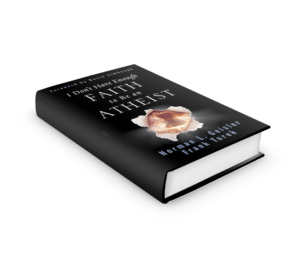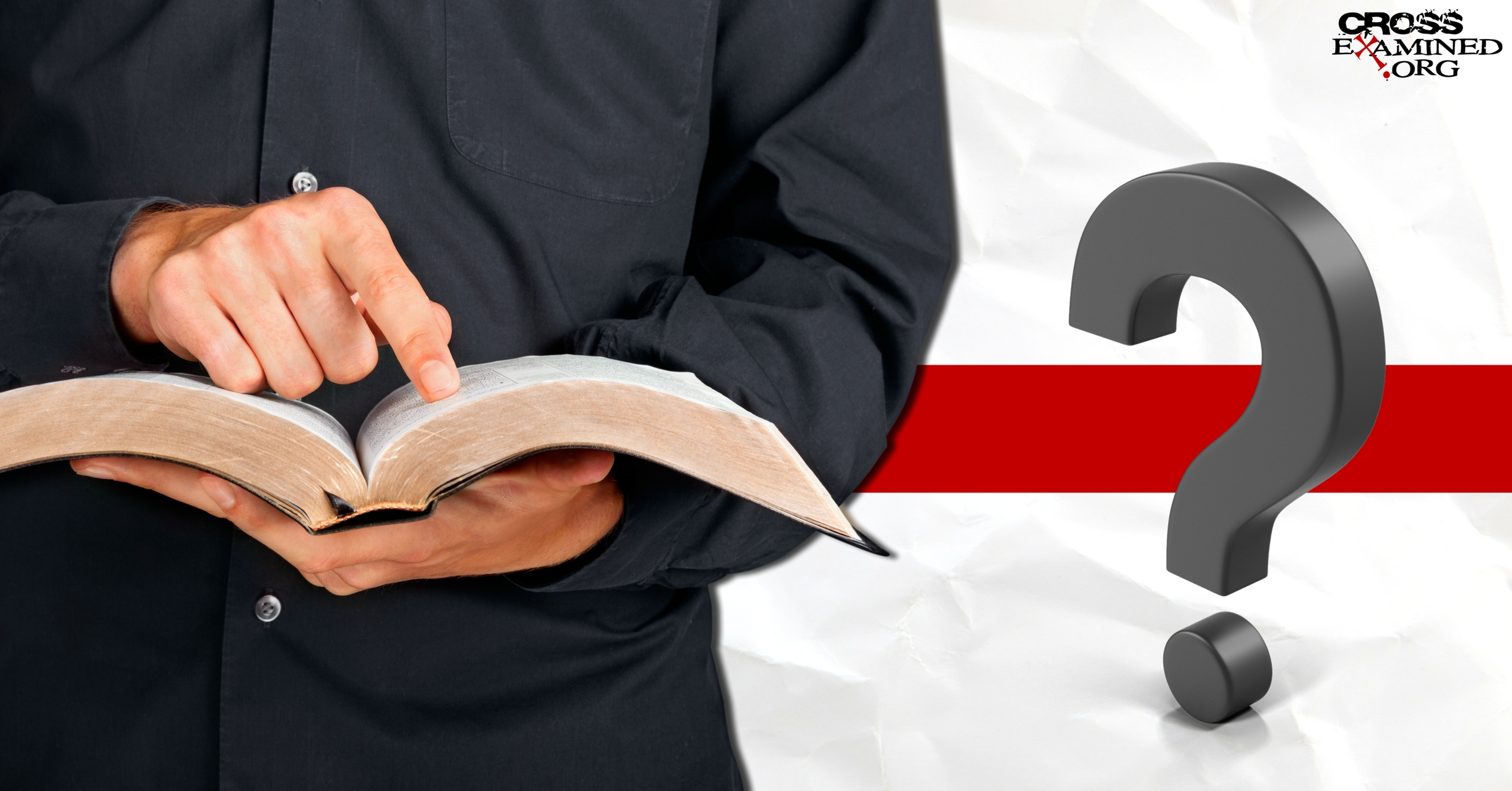By Spencer Toy
I’ve recently been listening to a number of the Reformed critiques of Andy Stanley and the defense of him that Frank Turek posted here at Cross Examined. While I believe that some of these criticisms have merit, I believe there is a major problem with the Presuppositional Apologetic method and would like to pose that problem to all those who would consider themselves to be Presuppositionalists.
Before I begin, let me state clearly that while I am not a Calvinist or a Presuppositionalist it is my honest desire to know the truth as God has revealed it in Scripture and follow the evidence wherever it leads. I know I am not always right and will respond to correction if I can be shown to be in error. I also do not want to misrepresent the views of Calvinists/Presuppositionalists in any way. I encourage anyone who disagrees with me to express their disagreement.
That being said, It is my understanding that according to the Calvinistic interpretation of Scripture, human reasoning is so totally depraved that any effort to understand or believe the Gospel is futile. Unless and until the Holy Spirit regenerates the reprobate mind, a person will continue to suppress the truth regardless of how well it is articulated or argued for.
In addition, the Calvinistic view of God’s sovereignty entails that God causally ordains all things that come to pass. There is no sense in which God merely “permits” things to occur. Everything that comes to pass, to include the unbelief of the reprobate, comes to pass because in so happening God will bring the most glory to Himself.
Here in lies a problem I don’t believe the Presuppositionalist will be able to get out of. Obviously, I understand that the Calvinist believes that God ordains means as well as ends. He has not revealed the content of His Divine Decree to us and therefore we are only accountable to what He has revealed in Scripture (i.e. preaching the Gospel to everyone since we are commanded to and we do not know the identities of the elect). Still, while an understanding of this may lead to a Calvinist carefully weighing the decisions he makes in the future, he still must acknowledge that all events in the past have occurred the way they did due to the Sovereign Decree of God.
This being said, I would like you to consider someone like Dr. Frank Turek who is not a Calvinist and uses the Classical Apologetics method. Based on the admission of Reformed theologians themselves, it seems to me that a Calvinist has to believe that ultimately the reason that Dr. Turek is in error regarding God’s Sovereignty and the proper apologetic method is because God has not granted it to him to understand these things. Just as the reprobate man’s fallen reason can never lead him to God, neither can Dr. Turek’s reason lead him to the truth of Reformed theology unless and until the Holy Spirit grants it to him to understand it. If Dr. Turek persists in his error, he does so only because God has sovereignly determined before the foundation of the world that he would be in error, for through Dr. Turek’s theological errors God will bring the most glory to Himself.
To illustrate this, consider this quote that Dr. James White made on his program The Dividing Line (September 8th, 2016). Speaking to fellow Calvinists with regards to addressing those who do not embrace Calvinism/Presuppositional Apologetics, White said, “You don’t know what their level of knowledge is, and you don’t know what God’s purpose is having not yet given to them an understanding of His Sovereignty. It’s up to God.”
Now once again, I’m sure that Calvinists will quickly respond, “But we don’t know the content of God’s Sovereign Decree! It is our responsibility to preach the truth through a proper exegesis of Scripture in hopes that God will use it as a means by which He will reveal the truth to Dr. Turek and others who do not embrace the truth of Reformed theology and Presuppositional Apologetics!”
Yes and I believe I understand that response, but I’d like to illustrate the problems of this response with a hypothetical dialogue between a Classical Apologist (CA) and a Presuppostional Apologist (PA). I understand that not every Presuppositional Apologist will give answers exactly like the ones I list here, but I have based all the hypothetical answers on statements made by Presuppositionalists in defense of their theology and methodology.
CA: “How do you know that the conclusions you’ve drawn about Reformed theology and Presuppositional Apologetics are correct?”
PA: “Because a proper exegesis of Scripture inevitably leads one to accept Reformed theology and its implications. I am prepared to demonstrate this directly from the pages of God’s Word.”
CA: “But I’m using the exact same Scriptures as you are and I don’t draw the same conclusions as you. How do you know that your exegesis of Scripture is correct?”
PA: “Like I said, I can demonstrate it. When you read the passages of Scripture in context with the proper historical and grammatical understanding, you’ll see that Reformed theology necessarily follows.”
CA: “In other words, you can REASON from the text. The words of Scripture clearly do not interpret themselves. If that were the case we wouldn’t be having this discussion. You and I disagree about what the implications of Scripture are and therefore you have to attempt to demonstrate that your view is true by engaging in reasoning. Didn’t you say that our reasoning capabilities are fallen and that we should never place human reasoning above God’s Divine Revelation?”
PA: “Of course our human reasoning is fallen. That’s why the Holy Spirit has to reveal the truth to us. I can know that my exegesis is correct because I begin epistemologically with God. Having put my faith in God thanks to the Holy Spirit’s regeneration, I can be confident that God has revealed the truth to me.”
CA: “But tell me this. Hypothetically speaking let’s say that God wanted you to be in error about some aspect of theology. He still elected to save you, but He knew that if you believed and taught this theological error to others, somehow in the grand scheme of His Divine Decree He would bring the most glory to Himself. Would it be possible for you to reach the truth assuming that God had decreed for you to remain in error?”
PA: “Well no. God’s Divine Decree cannot be resisted. Everything that happens in the universe ultimately occurs according to God’s decree in order that He might glorify Himself.”
CA: “But if that’s the case how could you ever confidently know that anything you believe is true? I suspect you’ll say because God has revealed it to you, but that would just be arguing in a circle. You just admitted that if God wants someone to be in error then they will certainly be in error, including me and including you! How can you know that what God has revealed to you isn’t an error so that He can bring more glory to Himself by your being incorrect?”
I have asked this question to Calvinists before and never received an answer with any more substance than, “You just don’t understand Calvinism!” or “It’s more diamond shaped than that!”
This I think truly exposes the fatal flaw of the Calvinist’s embrace of Divine determinism. As William Lane Craig has stated, once a person embraces determinism of any sort a strange vertigo sets in. One very well may believe true things, but only because they’ve already been determined to believe those things just as much as their opponents have been determined to believe false things. In such a system, nothing can be rationally affirmed.
I know that there is more to be discussed, but I don’t believe it is helpful at this point to simply appeal to the Scriptures that a Calvinist would use to defend their view of Divine determinism. Doing so would presume that you are engaging in proper exegesis, which can’t be the case if you are relying on fallen reasoning capabilities and can’t be rationally affirmed if you are relying on God to have revealed the truth to you. Simply put, it is impossible to begin epistemologically outside oneself. Unless we assume that our reasoning capabilities are generally reliable, arguments about any topic can’t go anywhere.
Resources for Greater Impact

WHY I STILL DON’T HAVE ENOUGH FAITH TO BE AN ATHEIST (DVD)

I DON’T HAVE ENOUGH FAITH TO BE AN ATHEIST (BOOK)





